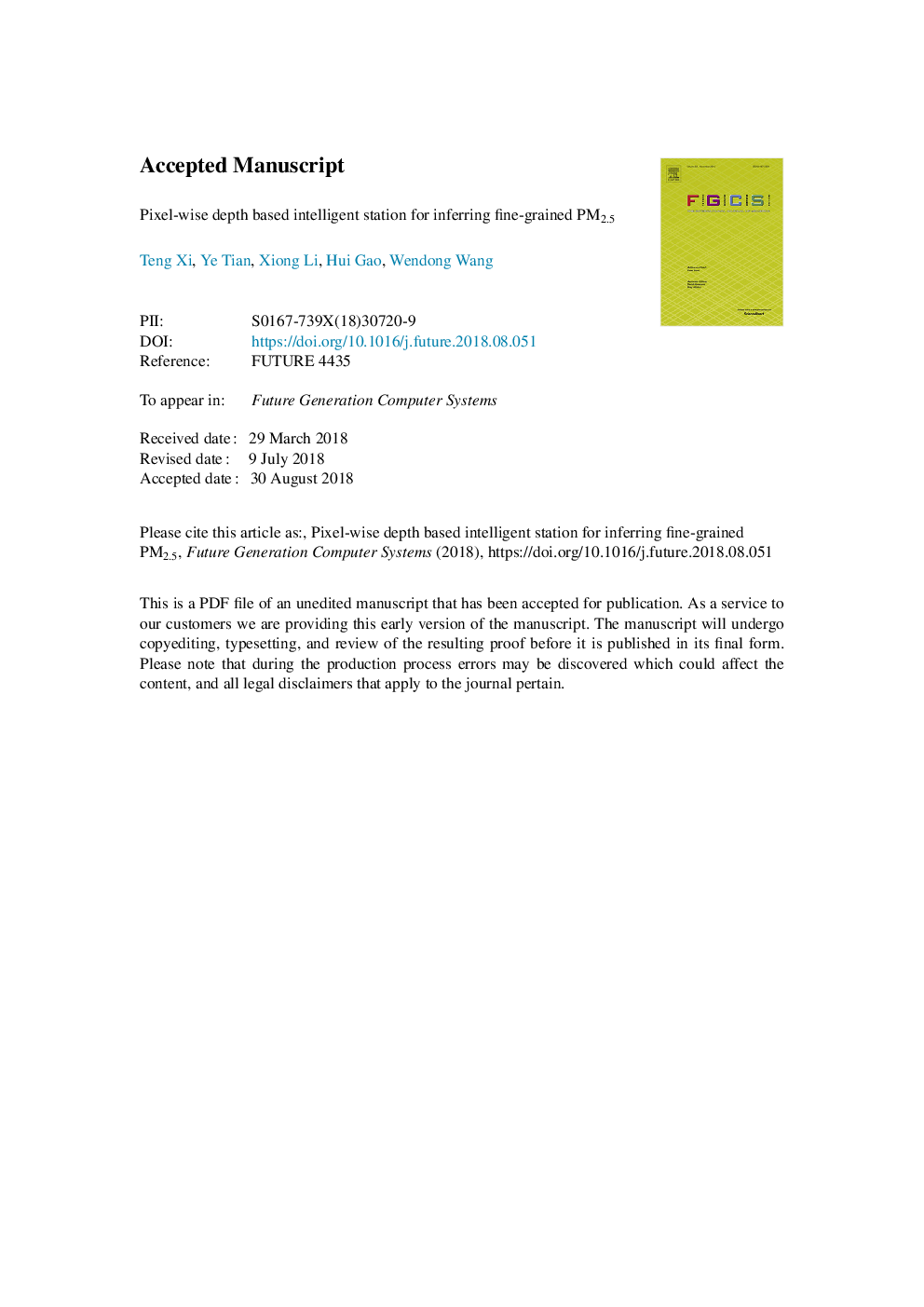| Article ID | Journal | Published Year | Pages | File Type |
|---|---|---|---|---|
| 11012476 | Future Generation Computer Systems | 2019 | 27 Pages |
Abstract
Air pollution seriously affects people's lives, among which PM2.5 is especially harmful for humans health. Although many countries have established air quality monitoring stations (AQMS) to monitor air pollution, the costs of constructing and maintaining for AQMS are extremely expensive and the density of AQMS is very low. Taking advantage of the artificial intelligence (AI) and the internet of things (IoT), we established image based intelligent station (IBIS) to monitor air pollution. To study the relationship between PM2.5 concentration and images information, an IoT based smart systems has been established which has collected photos for consecutive 16 months. Furthermore, we utilize deep learning algorithm to acquire pixel-wise depth information. By combining Bayesian estimation with pixel-wise depth information, knowledge learned from well developed IBIS can be transferred to other newly built IBIS. The performance of the proposed method has been evaluated by real dataset. The results show that, compared with three baselines, our proposed algorithm can reduce up to 35% prediction error in average.
Related Topics
Physical Sciences and Engineering
Computer Science
Computational Theory and Mathematics
Authors
Teng Xi, Ye Tian, Xiong Li, Hui Gao, Wendong Wang,
